

As co-creator and host of Gimlet Media’s Resistance, Saidu Tejan-Thomas Jr. (pronounced “sai-eed”) dives into stories from the front lines of the movement for Black lives. His love for exploring emotional and internal conflict can be heard throughout his work, which began in a completely different medium: slam poetry, for which he competed nationally while at Virginia Commonwealth University.
Saidu has won a Peabody Award (Gimlet Media’s Civil, 2017) and a 2020 Third Coast award (Best Documentary: Silver) for his piece “Borders Between Us.” This spring, Resistance was nominated for two Ambie Awards — Best Scriptwriting (Nonfiction) and Best Society and Culture Podcast.
I had the chance to sit down with Saidu via Zoom to talk about written versus audio storytelling, editing your work to the very end, and what podcast he can’t get enough of. Here's what you’ll learn:
- The upside of creative anxiety
- The role of music and sound design in a podcast
- Saidu’s indicator for when he’s found a good opening
- Why editing is an ongoing process — even in the recording booth
- How to find your storytelling voice
Portions of this interview have been edited for clarity and content.

Doug
Has your experience with poetry influenced how you tell stories?
Saidu
Yeah, I think it definitely has. That's how I learned how to tell stories that were meant to be spoken out loud in front of people on stage. And I think one of the biggest things that transferred from that experience was writing to be listened to.

The transition from there to writing scripts for audio, it really made that easier because I was able to understand pretty quickly the same kind of requirements, and some of the same kind of tenets, like making sure that whatever the conceit, or whatever the narrative is, it's following through.
Even when you’re writing metaphors or comparisons and stuff like that, you want the words to deepen your understanding of a thing rather than just being superfluous.
Even when you’re writing metaphors or comparisons and stuff like that, you want the words to deepen your understanding of a thing rather than just being superfluous.
Doug
When you're writing and you know there's going to be an audience for your words, is it freeing to know that what you create will be experienced by others?
Saidu
Oh no, it's not freeing. It's actually really anxiety-inducing. Because you're not just putting it on paper and stepping away from it, you're gonna say it in front of people. And it’s more than reading words on a page, I have to perform it to a degree. So yeah, it makes you very anxious, but I think it's that anxiety that pushes me to make sure whatever I'm writing is good. I critique myself as I'm writing so when I do present it to people, I feel like it’s ready for an audience.
Doug
As a creator, I imagine there are things you look back on and wish you could rework them to make them better. Do those stick with you? Or are you able to move past them and focus on the project at hand?
Saidu
They stick with me for a little bit. I think like a day or two after whatever the thing is has been published or is out there. I'm beating myself up about, ‘Yeah, I wish I would have chosen a different audio cue here,’ or ‘This cue is too loud,’ or ‘This writing isn't as good as I want it to be.’ It's getting out something but it's not quite right. Or ‘I wish I would have asked this question.’ I have all those regrets, but definitely, after a few days, I'm just gonna have to let it go because there's more stuff coming at you, and you’ve just got to keep moving.

Doug
When it comes to your writing, do you have in mind any sound design or music cues? Or do those come later in the process?
Saidu
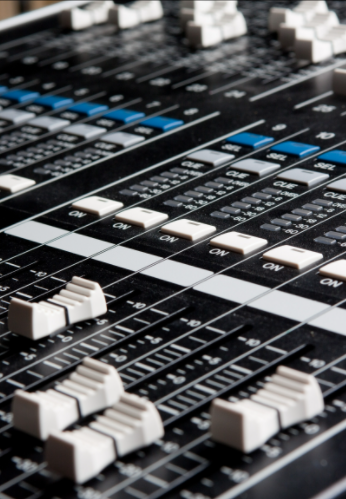
That comes later. Sound design and music cues, in my opinion, they're meant to accentuate what's already there. Not try to make up for what's not there or try to fill some kind of gap. Because if the story is good, you should already feel like it's scored, you should already feel like you're listening to something really compelling.
Sound design and music cues, in my opinion, they're meant to accentuate what's already there. Not try to make up for what's not there or try to fill some kind of gap.
Doug
It’s more of a partner in crime versus two separate stages.
Saidu
Yeah, exactly.
Doug
When it comes to audio journalism, do you have any rules of the road for do's and don'ts?
Saidu

I think it's really important how you start a story. Because that's where somebody decides within the first 30 seconds whether or not they're going to listen to it. I think it's really important to find unconventional ways to pull people in. Things they may not have heard of before, start from a place of something new or different to catch people's attention. Which is not super revolutionary.
I think it's really important to find unconventional ways to pull people in…The ways people start stories, most of the time, are the same.
That advice has been given before, but the ways people start stories, most of the time, are the same. And I think there's other ways to do it. And people should explore those other different ways, because novelists do it. Even the best print journalists do it. That's something I really try to think about.
Doug
Scott Adams, the creator of Dilbert, talks about getting a physical reaction when he’s written a good joke. Are there any indicators for you when you know you’ve found a good opening?
Saidu
The light kind of goes off in my head like, “Oh, I have something.” At that point, usually I just need to chisel it down. But it's that moment where I figure out what the first couple lines are. And those first couple lines usually feel like something that’s a question or feeling deep in my gut that I don't really have an answer for, but I want to search for it.
That's a well I go back to over and over again, where I'm just like, how do I write about this? How do I get into the story? And usually what I end up doing is leaning into what I don't know, or leaning into my curiosity, or leaning into what appeals to me about this thing. When I have those first few words down, that's when I'm like okay, now I can spin out a whole tale from this.
Doug
Do you ever start with the ending in mind? Knowing, okay, this is what I'm working toward?
Saidu
I don't really have the ending in mind. I may have in mind what's going to happen after the theme music plays. Because that in itself is another start. After the theme plays, there’s a bit of a story reset. So I'm thinking about what that reset’s going to be. And that helps, but I don’t have the ending in mind, it's too far away.

Doug
What lessons have you learned from other podcasts?
Saidu
From other podcasts I’ve learned that I really like when stories are about people searching for some kind of answer or going on a personal or emotional journey. And I like stories that get me invested in the person who's telling me the story. Of course, that's not the only way to tell stories. As far as the most potent stories, I think it's always more gripping when the storyteller has some kind of personal stake in it.
Doug
Do you have any advice for podcasters who are trying to find their storytelling voice?
Saidu
If you're writing scripts, say for a narrative podcast, the best thing you can do is just continue to take multiple stabs at writing scripts that sound like yourself, ones that sound like how you would speak. Even if that means throwing some colloquial words in there that you use in everyday speech.
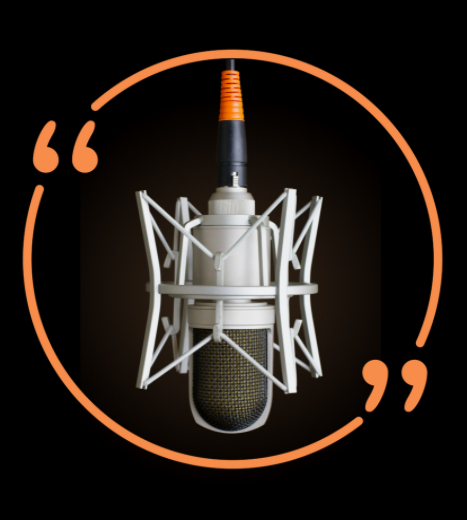
Sounding like yourself when you’re writing a script can be really hard because the way we write is totally different from the way we speak. If you want to sound like yourself, for the most part, it really starts and ends with the writing.
Focus on working to make [your script] as close to your speech as possible. Because if you get it close, your mouth will do the rest.
So focus on working to make it as close to your speech as possible. Because if you get it close, your mouth will do the rest. But if it's difficult, your mouth will struggle with it and be like, what are we saying?
Doug
When you're in the recording booth, do you ever find yourself making edits because it's not reading the way you thought it would?
Saidu
Oh, every single time. I'm doing edits as I'm tracking. Totally. It's different when you're reading it aloud during a recording session than when you're writing it. And often, a more relaxed way of speaking will come out in the recording booth. But I try to get it as close as possible on paper first.
Doug
Are there any podcasts you're really into right now?
Saidu
I really love this one podcast I feel never gets enough shine. But it's phenomenal. It's called Bronzeville. It’s a fictional tale about Black life in Chicago in the 40s. It’s just like the daily comings and goings of this place. And there are really compelling characters all these really, big-name Black actors like Laurence Fishburne and Larenz Tate. And they just made this phenomenal podcast. And nobody talks about it, but It's so good.

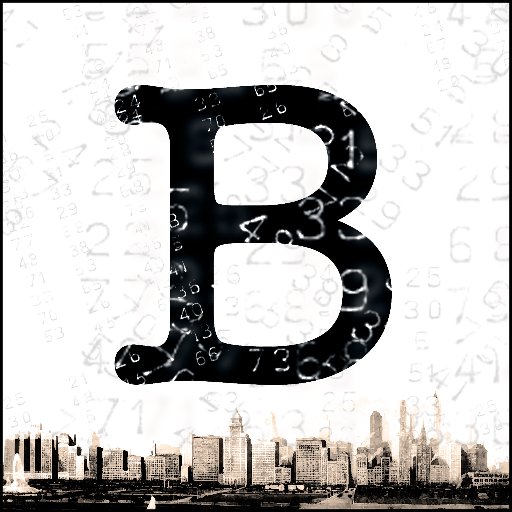
Note: Director Larenz Tate recently announced that Bronzeville will be adapted into a television series. The podcast has been downloaded over 20 million times and released its second season last month.

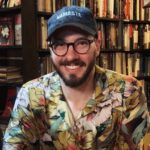
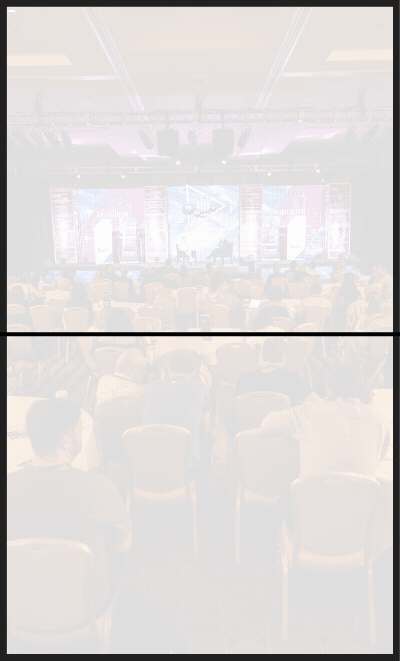


Join the Movement